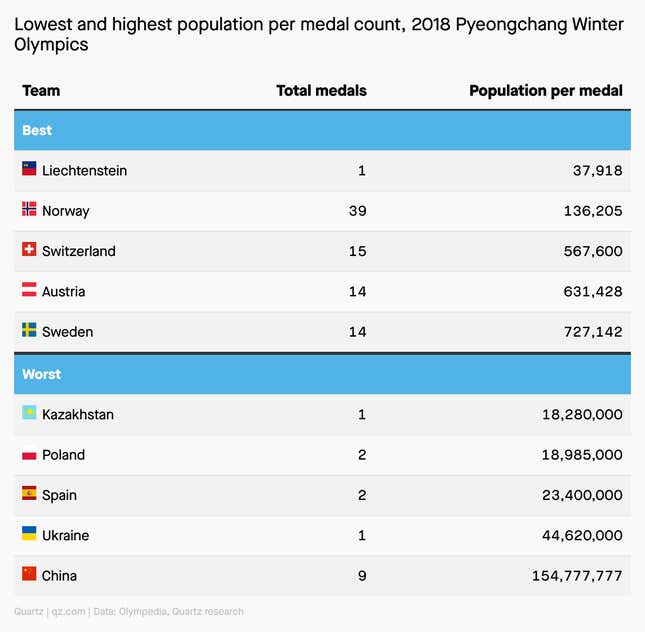Good morning, Quartz readers!
Was this newsletter forwarded to you? Sign up here. Forward to a friend who’s always talking about the final frontier.
Here’s what you need to know
The US said it will block a Russian gas pipeline if Ukraine is invaded. However, it’s not exactly clear how the US would stop the planned Nord Stream 2 project between Germany and Russia.
Tencent wants to privatize DouYu. According to Reuters, strategy disagreements at the Chinese video game streamer is pushing Tencent, DouYu’s largest shareholder, toward a restructure.
The US economy had a good fourth quarter. While GDP grew at 6.9% to cap off 2021, that growth is expected to slow this year because of supply shortages and weaker spending.
Tata Sons took over Air India. The deal is a win for prime minister Narendra Modi, as the unprofitable carrier has been relying on taxpayer funds.
LG Energy Solution is now South Korea’s second-most valuable firm. Stock of the electric car battery maker jumped 68% on its trading debut yesterday.
The cryptocurrency selloff wiped $7 billion from corporate balance sheets. The price of bitcoin has fallen 46% since peaking in early November at more than $67,000.
What to watch for
Lunar New Year may not start until Feb. 1, but for many, the holiday kicks off this weekend. In a normal year, that would entail travel, family, friends, and feasting. This year, with the Olympics starting mere days after, China has put in place strict requirements to keep covid outbreaks at bay.
Here’s what a very different Lunar New Year looks like:
1.18 billion: Number of trips China’s Ministry of Transportation expects will be made during the Lunar New Year travel season
60%: Drop in trips expected in 2022 compared to 2019
300%: Increase in the number of searches for “spending Lunar New Year in place,” by those who work in a different place than where they’re from, compared with last year
0.8: Percentage points the IMF shaved off its 2022 GDP forecast for China due to the country’s zero-covid policy
50%: Jump in air freight rates from Asia to northern Europe ahead of the holiday
Who gets that cold gold?
The Winter Olympics are nearly upon us, and countries are sending their best to Beijing in hopes they’ll add to (or in some cases begin) the tallying up of medals won over the years.
You might argue that countries with large populations, like Germany and the US, have an advantage: they simply have more choice. But here’s how countries performed when comparing wins to population at the most recent Winter Olympics. Take a look at where China falls on the list.

This year, China is hoping to go for that cold gold. Follow the Winter Games with our Need to Know: Beijing Olympics newsletter. Hit the button below to sign up instantly, and join us as we spectate from afar.
Microsoft has big plans for Activision
If Microsoft’s Activision deal is approved by regulators—no small if—it will be the former’s biggest acquisition ever, with a price tag higher than its last three purchases combined. How would becoming a gaming giant suddenly make Microsoft one of Meta’s biggest rivals? We’ll help you connect the pixels. ✦ Try a seven-day free trial of Quartz membership for access to all of our member-exclusive emails.
Handpicked Quartz
😔 The death of four Indians on the US-Canada border spotlights the desperation to immigrate
🏢 How Salesforce, IBM, and HSBC are approaching return to work now
💸 Indians want those who profited from covid pay a surcharge, and an argument could be made that this includes Microsoft
🚀 The terrifying sci-fi movie all space exploration fans should watch
🎾 Kenya’s new tennis star made history at the Australian Open
🧥 Going fur-free is the newest form of virtue-signaling in fashion
Surprising discoveries
Crank that dance music. Researchers found that when people listen to happy beats, the market is more likely to outperform.
A frog regrew its amputated leg. Eighteen months after a single 24-hour treatment, the amphibian regenerated a nearly fully functional leg.
A Holocaust graphic novel was banned by a Tennessee school board. Critics cited profanity and nudity in Maus, a Pultizer Prize-winning book that tells the story of a Jewish Holocaust survivor.
Orcas kill blue whales. For the first time, scientists recorded a pod of female-led killer whales overpowering the world’s largest animal.
We’d probably survive a 10 km (6.2-mile) Don’t Look Up asteroid. At least a pair of physicists has hope in humanity.
Our best wishes for a productive day. Send any news, comments, money-making playlists, and banned books to hi@qz.com. Get the most out of Quartz by downloading our iOS app and becoming a member. Today’s Daily Brief was brought to you by Ana Campoy, Amanda Shendruk, Morgan Haefner, and Susan Howson.
